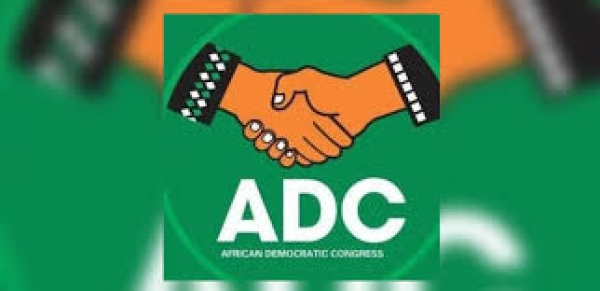Multiple sources close to Atiku and Obi’s camps, who spoke with Punch on the condition of anonymity due to a lack of official authorization, disclosed that a meeting held on Tuesday night marked a significant step in the ongoing coalition efforts.
During this meeting, the coalition leaders agreed to adopt ADC as the central platform for their political alliance.
The sources further revealed that efforts were already underway to restructure and strengthen ADC in preparation for the 2027 election, with official announcements on the changes expected in the coming days.
Brief history of ADC
Founded in 2005 by a group of political reformers and civic-minded Nigerians, the African Democratic Congress (ADC) has steadily positioned itself as a centrist party committed to inclusive governance, youth empowerment, and national development. At the helm since inception is Ralphs Okey Nwosu, who remains the party’s National Chairman and key architect of its ideological identity.
Though yet to break into the top tier of national vote share, the ADC has consistently fielded presidential candidates:
2023: Dumebi Kachikwu emerged as the party’s flag bearer, polling 81,919 votes and finishing fifth overall, behind APC’s Bola Tinubu, PDP’s Atiku Abubakar, LP’s Peter Obi, and NNPP’s Rabiu Kwankwaso.
2019: Dr. Obadiah Mailafia secured 97,874 votes, placing fourth among 73 contestants.
2015: Dr. Mani Ibrahim Ahmad polled 29,666 votes, ranking seventh out of 14 candidates.
These results reflect the ADC’s steady performance in Nigeria’s crowded electoral field, often emerging as a credible alternative behind the dominant parties.
The ADC has had notable presence in the National Assembly, especially in Kogi State:
Leke Abejide was re-elected in 2023 to represent Yagba Federal Constituency, winning with 23,271 votes, outperforming both APC and PDP challengers.
Salman Idris, also elected in 2023 under the ADC to represent Kabba-Bunu/Ijumu Federal Constituency, has since defected to the APC.
With the PDP, Labour Party (LP), and NNPP grappling with internal crises, political analysts are increasingly viewing the ADC as a stable third-force platform for opposition realignment ahead of the 2027 general elections.
Its track record of participation, internal coherence, and centrist ideology makes it an attractive vessel for coalition talks and strategic partnerships among reformist political actors.
[NaijaNews]


